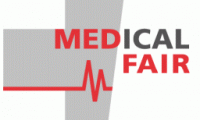-
Personalized video exercises may be useful to support rehabilitation for people with RMD
- Source: drugdu
- 268
- June 2, 2023
-
FDA warns patients about compounded versions of Novo Nordisk’s Ozempic, Wegovy
- Source: drugdu
- 641
- June 2, 2023
-
US appeal in high-stakes Gilead patent case garners support from patient advocates
- Source: drugdu
- 417
- June 2, 2023
-
Amgen reports positive results for Otezla in psoriatic arthritis
- Source: drugdu
- 521
- June 2, 2023
-
FDA warns about compounded semaglutide-based drugs
- Source: drugdu
- 281
- June 2, 2023
-
FDA’s cancer chief weighs in on common chemo shortages — report
- Source: drugdu
- 279
- June 2, 2023
-
MEDICAL FAIR THAILAND
- Source: drugdu
- 1,191
- June 1, 2023
-
CPhI Worldwide Europe
- Source: drugdu
- 1,847
- June 1, 2023
-
FIME 2023
- Source: drugdu
- 1,053
- June 1, 2023
-
Cats can play a role in transmitting COVID-19, finds new study
- Source: drugdu
- 492
- June 1, 2023
your submission has already been received.
OK
Subscribe
Please enter a valid Email address!
Submit
The most relevant industry news & insight will be sent to you every two weeks.

















